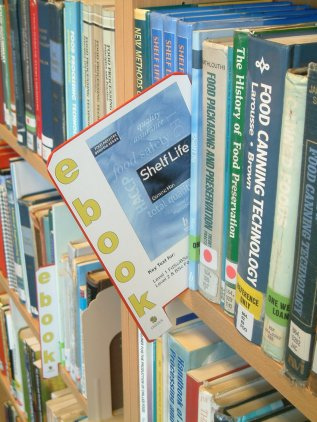Although e-books have been incorporated into the academic library‘s collection for over a decade now, it has not been, until today, without question. It is still, as the literature reveals, a controversial topic for librarians, publishers, and users around the globe. Although many researches indicate that patrons still prefer the printed format over the electronic version, the tipping point seems to be reaching us earlier then many might think. The growing availability of e-books to users has begun to affect user perceptions and attitudes toward e-books, creating more access and usage opportunities, a recent research concluded.
This paper presents the results of a large scale survey designed to investigate usage patterns and attitudes towards e-books by students and faculty at Andrews University and its impact on James White Library‘s collection development policy. One important aspect which the study intends to investigate is how the use of e-books impacts student‘s learning. The subjects are divided into four different groups, namely, (1) students who purchased the electronic version of an e-textbook for a class (the bookstore offered 74 books in an electronic format); (2) students who had the opportunity of purchasing and electronic version of a textbook but preferred the traditional print format; (3) students who‘s only choice was the printed version; (4) faculty who had the electronic version of a textbook; and (5) faculty who‘s only choice was the printed version.
The e-book survey results will greatly assist Andrews University‘s library in gaining a better understanding of patron (students and faculty) awareness, usage, and preferences regarding e-textbooks and e-books in general. Although there are many issues to be resolved, such as ownership, delivery methods, instruction, cost, and marketing strategies, e-books are becoming a must for libraries, and therefore, a study such as this will shed light on how academic libraries should react to this inescapable trend.
Silas M. Oliveira has been Reference/Database/Off-Campus Services Librarian at Andrews University since 2007. Faculty of GSLIS at the Catholic University of Campinas, Brazil, 1984-2004 where was also Dean of the Graduate School for 4 years. Previously he was Head of Reference Services at the Universidade Federal de Viçosa, Brazil and before that, Associate Director of the Instituto Adventista de Ensino‘s library, in São Paulo, Brazil.
He has a B.A. in Theology, a B.A, MLS and a Ph.D in Library & Information Science. This last degree from the University of Illinois, IL. He has implemented strategic planning and organizational structures in several academic libraries and has published in the international library and information science literature.
#p224 #iatul2012 Surprised me that I found the “e-textbook” presentation very intriguing. A lot more to investigate!
— Ivan Chew (@ramblinglib) June 5, 2012
#p224 #iatul2012 their survey showed students “very undecided” about recommending e-text bks to others
— Ivan Chew (@ramblinglib) June 5, 2012
@ramblinglib #p224 #iatul2012 looks like publishers have a way to go with etexts.
— Michael Wiebrands (@morfaine) June 5, 2012
#p224 #IATUL2012 Demonstrating that usage of academic eBooks is a work in progress and we are not there yet!
— Peter Green (@lgreenpd) June 5, 2012
#p224 #iatul2012 speaker: for 2 decades, research consistently show e-text bks used for reference, not cover to cover
— Ivan Chew (@ramblinglib) June 5, 2012
@ramblinglib #p224 #IATUL2012 My problem is that change in the eBooks space is so rapid that 6 months is a long time between surveys.
— Peter Green (@lgreenpd) June 5, 2012
#p224 #iatul2012 60% students had neg perceptions abt e-text books. Can’t scroll/ can’t resell
— Ivan Chew (@ramblinglib) June 5, 2012
#p224 #iatul2012 Andrews Uni surveyed usage patterns & attitudes towards e-books by students and faculty twitter.com/ramblinglib/st…
— Ivan Chew (@ramblinglib) June 5, 2012


